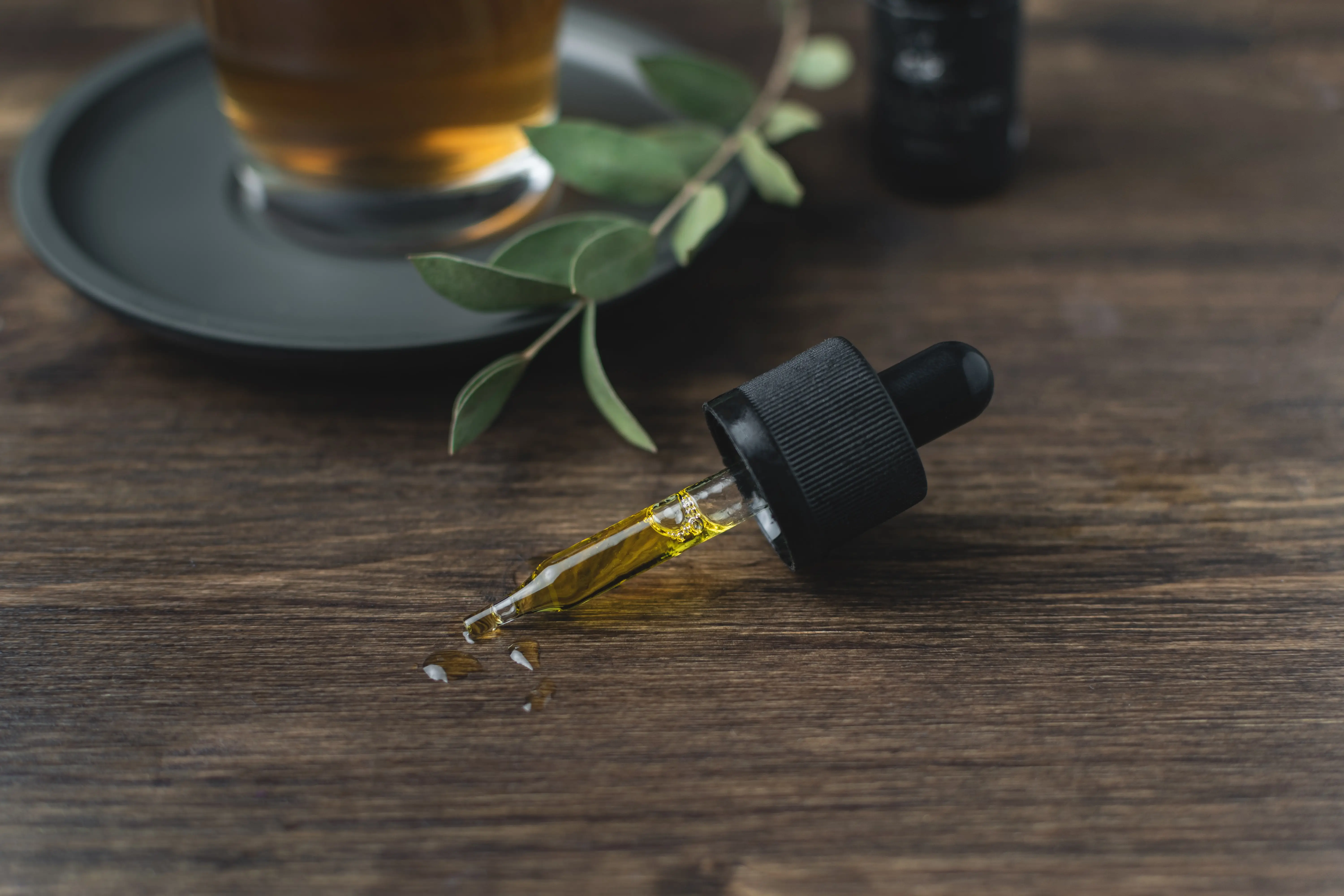Does CBD counteract THC?

Scotty Asked
Does CBD reduce the high from THC?
Summary

Answer
Hi Scott and thanks for the excellent question. The idea that CBD counteracts the psychoactive effects of THC is a widely held belief in the cannabis community. In fact, people that are new to cannabis are often told to start out with products that are formulated with a 1:1 THC:CBD ratio because these products are believed to be less intoxicating. CBD also commonly gets marketed as a way to reduce the unwanted effects of THC. Feeling too high or uncomfortable? Take some CBD and your discomfort will supposedly melt right away. So does this really work?
The idea that CBD counteracts the effects of THC stems from the fact that the two compounds exert completely different effects.
THC causes acute intoxication, problems with memory and coordination, paranoia, and can lead to dependency, and addiction with prolonged heavy use. THC is also linked to an increased risk of psychosis and can cause anxiety or panic-like reactions frequent in inexperienced users.
On the contrary, CBD is not intoxicating, has been proven to treat seizure disorders, and is being studied for the treatment of multiple health conditions including anxiety, psychosis, and addiction.
Since CBD shows promise as a potential treatment for anxiety, psychosis, and addiction and THC is associated with all three of those conditions, it is easy to arrive at the conclusion that CBD counteracts the negative effects of THC. This thought has subsequently been applied to products containing both THC and CBD. However, when the two are given in conjunction with one another the picture becomes much more complicated. The idea that CBD counteracts THC is attractive, but is a serious oversimplification of what the science suggests.
Let’s take a closer look at what the latest scientific research tells us.
CBD decreases THC’s Effects
Early research on this topic occurred in the 1970s using oral cannabis extracts. Researchers demonstrated that 30 mg THC produced increased heart rate, inability to produce a time interval, and psychological changes. But when the researchers administered 15-60 mg of CBD alongside the THC the magnitude of those effects were reduced.
In another study during the same time period, a group of researchers showed that smoked CBD reduced the subjective euphoria caused by smoked THC, but had no effects on THC-induced memory impairment and coordination. In a follow up study by the same group, they found that pre-treatment with CBD didn’t alter the effects of THC. These studies used extremely low concentrations of THC, 0.7% by weight, which was normal for cannabis grown in the United States at that time. Nowadays it’s not uncommon to encounter cannabis with THC concentrations upwards of 20%.
More recently, a 2013 study found similar protective effects of CBD. In this study, participants were given 600 mg oral CBD three and a half hours before receiving an intravenous infusion of 1.5 mg synthetic THC. The researchers found that pre-treatment with CBD reduced psychotic symptoms, paranoia, and memory impairment.
In addition to the above referenced experimental studies, observational studies show a trend toward CBD protecting against THC’s unwanted psychological effects.* One study found fewer psychotic symptoms in cannabis users that used hashish high in CBD content and another showed more psychotic symptoms present in cannabis users that tested positive for THC alone compared to those that tested positive for both CBD and THC.
CBD doesn’t decrease THC’s Effects
In stark contrast to the aforementioned studies, a number of studies have shown CBD lacks the ability to reduce THC’s effects. In one study, subjects were pre-treated with oral CBD at doses of 200-800 mg 90 minutes before smoking cannabis high in THC. The study found that CBD didn’t reduce the reinforcing (euphoric) effects from smoking cannabis high in THC.
In another study, patients vaporized either 8 mg THC; 16 mg CBD; or 8 mg THC and 16 mg CBD combined (1:2 ratio). This study showed that THC impaired memory and increased psychiatric symptoms and co-administration with CBD, at a 1:2 ratio, did not reduce any of the effects.
CBD increases THC’s Effects
Contrary to popular belief, more recent research supports the notion that CBD increases THC’s effects, especially at lower more commonly available doses of CBD. In one study, researchers examined the effects vaporizing THC/CBD had on driving and cognition. The study found that attention and driving performance were significantly worse in a group of subjects that vaped cannabis with a 1:1 (THC:CBD) ratio. The researchers also measured THC blood concentrations and found the 1:1 group had higher THC concentrations in the blood than another group that vaporized high THC low CBD cannabis.** This study suggests that CBD may exacerbate THC’s intoxicating effects by increasing the bioavailability of THC.
Another study examining the effects of vaporized cannabis at various THC/CBD concentrations found similar results. In this study, a 1:1 THC:CBD cannabis variety produced a greater reduction in pain scores and magnitude of drug “high” compared to THC dominant cannabis. These findings indicate CBD may increase THC-induced intoxication and pain relief.
An additional study examined the acute effects of vaporized THC and CBD, alone, or in combination, in both experienced and inexperienced cannabis users. Patients were given either placebo, 8 mg THC; 400 mg CBD; 8 mg THC and 4 mg CBD; or 8 mg THC and 400 mg CBD. Patients were given three doses, an initial dose, and doses 65 and 120 minutes later. The study found that CBD’s effects on THC-induced intoxication were dose dependent. Low doses of CBD (4 mg) increased the intoxicating effects of THC, but high doses (400 mg) reduced intoxication. This suggests CBD’s ability to reduce THC’s effects is dependent on the ratio of THC to CBD. Researchers noted that enhanced THC intoxication due to low doses of CBD was especially obvious in inexperienced users. They also found that vaping high doses of CBD (400 mg) was extremely irritating to subjects’ airways, suggesting the dose of CBD needed to reduce THC intoxication may not be realistically achievable with currently available methods of consumption. This study also measured THC blood concentrations and found that co-administration of 400 mg CBD with 8 mg THC decreased THC blood concentrations in most subjects, but in frequent cannabis users, actually increased them. This suggests a complex interaction between THC and CBD that’s dependent upon route of administration, timing of consumption (pre-treatment or taken at the same time), dose of both compounds, and history of cannabis use.
Final Words
So back to your question. Early research on the topic suggests CBD may reduce the high from very low doses of THC, but these doses aren’t likely to be common in modern cannabis products, especially recreational ones. Several studies suggest that low or equivalent doses of CBD increase the high from THC, whereas higher doses of CBD reduce THC’s effects. This gives rise to the possibility that people who are trying to use CBD to reduce unwanted effects of THC may inadvertently increase them.
There is a large hole in public knowledge about this topic as CBD is frequently stated to broadly counteract the negative effects of THC, despite limited evidence supporting the claim. Marketing CBD in this way certainly makes sense as this can make medical cannabis products more appealing. However, CBD’s ability to reduce THC’s effects is highly dependent upon a variety of factors including cannabinoid dose, ratio, route and timing of administration, and patient history of use.
The view that CBD broadly reduces THC’s negative effects is misleading and oversimplifies how the two compounds interact. Ultimately the topic requires further study to understand more about how CBD works to reduce THC’s effects.
As with any drug or natural product, be sure to talk with your doctor before using CBD or cannabis products.
Footnotes:
*In experimental studies, scientists control the intervention (in this case THC and CBD) to study the effects. In observational studies, researchers don’t exert control over the intervention.
**The concentrations of a drug in the blood drug provide information about the drug’s bioavailability. Bioavailability is the proportion of drug consumed that enters the circulation and is an important determinant of drug effects. In most cases, higher blood concentrations of a drug are correlated with greater drug effects.
- CBD and THC: Do they complement each other like yin and yang? PubMed.
- Cannabidiol interferes with the effects of Δ9-tetrahydrocannabinol in man. PubMed.
- Influence of cannabidiol on delta-9-tetrahydrocannabinol effects PubMed.
- Cannabidiol inhibits THC-elicited paranoid symptoms and hippocampal-dependent memory impairment PubMed.
- Oral Cannabidiol does not Alter the Subjective, Reinforcing or Cardiovascular Effects of Smoked Cannabis PubMed.
- Individual and combined effects of acute delta-9-tetrahydrocannabinol and cannabidiol on psychotomimetic symptoms and memory function PubMed.
- A randomised controlled trial of vaporised Delta(9)-tetrahydrocannabinol and cannabidiol alone and in combination in frequent and infrequent cannabis users: acute intoxication effects. PubMed.
- Cannabidiol (CBD) content in vaporized cannabis doesnot prevent tetrahydrocannabinol (THC)-induced impairment of driving and cognition. PubMed.
- A preliminary evaluation of the relationship of cannabinoid blood concentrations with the analgesic response to vaporized cannabis. PubMed.
- Does Cannabidiol Protect Against Adverse Psychological Effects of THC? PubMed.
- A Single Centre, Placebo-Controlled, Four Period, Crossover, Tolerability Study Assessing, Pharmacodynamic Effects, Pharmacokinetic Characteristics and Cognitive Profiles of a Single Dose of Three Formulations of Cannabis Based Medicine Extracts. Study Article.




